
Do you have what you need to make your garden grow?


Garden Center
Store Hours
Mon-Sat:
6:00am - 10:00pm
Sun:
8:00am - 8:00pm
Curbside:
09:00am - 6:00pm
Location
Popular at Your Garden Center
Trending Garden Supplies in May
Trending Live Plants
Garden Project Calculators
;Resize=(703,395.44))
Grass Seed Calculator
When you're ready to seed your lawn, our calculator helps you estimate the amount of grass seed you'll need to get the job done.
;Resize=(703,395.44))
Mulch Calculator
Enter your preferred material, the square footage and mulch depth of the coverage space for accurate results.
;Resize=(703,395.44))
Fencing Calculator
We'll calculate the amount of fencing you should purchase based on your property needs.
Shop Outdoor and Garden Brands
Frequently Asked Questions About Gardening
Which planting zone am I in?
Check the USDA planting zone map, as planting zones have changed slightly over the years. Zones with higher numbers can plant earlier in the year. Increase your odds of successful gardening by choosing plants that are meant for your zone.
Can I plant seeds directly in the ground?
If the ground isn't frozen solid and the soil isn't cold, consider planting your fruit, flower, or veggie seeds directly into your garden. This is called the "direct sow" method. The time to plant will be after the threat of frost is gone for the season, as seedlings and sprouts can't weather those conditions. You can also start your seeds indoors if you'd like. Consult your seed package for how and when to sow seeds.
How do I plant fruit seeds?
The best source of information is the seed package your garden-to-be came in. It's key to successfully growing fruits, veggies, and spring flowers — indoors or outdoors. Requirements vary with each seed type. Certain seeds should only be sown indoors, and your seed envelope will tell you that, too. You'll be a pro at planting seeds in no time.
Should I harden off my seedlings before planting them outside?
Yes, for best results, if you raised plants indoors from seeds in your own plant nursery, harden them first before you transplant them. Hardening allows your seedlings to adjust to outdoor life, spring rains, and temperature swings, making them more resilient against cold snaps. It slows their growth until they're strong and ready to take off during a spring warm front.
Can I strengthen my seedlings before planting them outdoors?
Get your sprouts used to breezy spring days and storms with a fan and keep fungus from growing in damp conditions. Set up an oscillating floor fan on low to mimic the wind. Just the gentlest breeze for several hours a day will do the trick — no need to prep them for a hurricane. They'll gain strength even though you shouldn't see them moving. If you don't set up a fan, your seedlings may be more sensitive to strong winds. Try to plant between storms.
Should I use peat moss starters or coir starters?
Seed starters, full of nutrients in convenient pellets or pots, work for new and experienced gardeners. You don't have to use these starters if you're planting in soil, but you may want to. Starting seeds in peat pots works best for delicately rooted plants like carrots and beets, as well as flowers that require an acidic pH. Some people prefer coir starters instead, as they have a neutral pH. Check what type of soil your plants need to help narrow it down, and chat with a garden center associate if you need more info.
Garden Project Ideas
The Home Depot Garden Center at Summerville
Set Up For Springtime
It's time to start thinking of spring. Clean the shed and sweep out the gazebo to prepare for sprouts poking up, warmer temperatures, and fragrant breezes. Planting seeds indoors near a sunny window means you'll be ready to transplant spring flowers and young veggie plants when the frosts are through and the ground thaws. You might even want to sow seeds directly into the earth. What better way to start than by exploring your favorite local plant nursery, The Home Depot Summerville Garden Center?
Plant Hardiness Zones Explained
The first thing you should know when planting veggies, spring flowers, and other seeds is your planting zone. Every location in the U.S. and its territories is sorted into blocks by climate. Find your zone on the USDA plant hardiness zone map and learn when to plant seeds.
For example, you could plant bell pepper seedlings outdoors in mid-March in Zone 10, but not until the end of May in Zone 4. For best results, choose plants in your zone number or less. In other words, a Zone 7 garden can support plants listed as Zones 1–7. The timeframe to direct sow outdoors in your garden is often around a month later than the indoor start date. Always read your seed packet for details. If you start them later than recommended, it's not ideal, but it will even out as time passes.
Gardening in Your Growing Zone
In the areas of Zones 9 and 10 stretching across the Southeast, you can begin planning and planting indoors early in the year. Your odds of frost are low in this part of the country, but not zero. Watch out for cold snaps and cover any early-riser bulb plants or sprouts during cold times.
The weather and climate make it easy to get and keep a beautiful garden going. A wide variety of vegetables, plants, and flowers thrive in Florida and southern Georgia. You can even grow citrus trees for fresh fruit when you plant somewhere with good soil drainage. You'll have excellent results with peppers of all colors and heat levels, including jalapeños, bell peppers, and more. Zucchini, cucumbers, squash, and pumpkins, which are direct sow only, will flourish. Tomato plants will yield thriving fruit and leaves, as they're tropical in origin and love the heat.
Start Seeds Indoors
Save money and gain the satisfaction of growing your garden from seeds by starting them indoors in your own plant nursery. We've got all the seed starter supplies you'll need. Make sure you have a warm and sunny spot that gets at least 12 hours of light and good soil, a spray bottle of water, and patience. Then you have everything you need to try growing seeds. Early spring light isn't usually strong enough, so we recommend extra lighting to keep those seeds warm enough to germinate.
Measure your finger to use it as a ruler. In general, you'll plant 3–5 seeds, then press them into the soil to the depth you need with your finger. Mark where you planted the seeds with a toothpick or plant tag. Otherwise, it'll be a surprise when the sprouts push out of the soil.
Sprouts
When your seeds have sprouted but aren't ready to go outside yet, you can still prepare them for outdoor life. These micro-seedlings are fragile — only an inch or so high, with the tiniest seedling leaf or two — but they're resilient. Seedlings certainly don't get all this pampering in nature when they volunteer and grow wherever, so they can handle more than you think. However, don't go overboard, as your sprouts are still babies. You can even use an oscillating floor fan on low to mimic the wind and strengthen their stems.
Harden Your Seedlings
When you're hardening your sprouts and gradually introducing them to the outdoors, be flexible. Keep an eye on your baby plants. If they're looking rough, don't push them. It’s ok to roll back a step or two if need be: Bring them inside overnight or put them in shady places instead of direct sun. As always, make sure they're watered enough but not drowning. Whisk wilted plants inside and give them a good drink, making sure they're strong before returning them outdoors.
Transplant Young Plants Into Their New Homes
Place your transplants in the ground, then give them a generous drink without overwatering. Blanket the surrounding area with mulch, marking where the plant is with a stick so you can easily find it among the grass clippings, old leaves, or straw. Consider putting up chicken wire or other protective measures if rodents or deer visit your yard regularly, as your sprouts may otherwise become a snack.
Protect Your Garden With Mulch
Finish your flower bed with compost and mulch. Mulch controls weeds and keeps the soil moist. Compost enriches the soil so your garden can grow even better. It may help foster larger plants that bear more flowers and fruit. Compost and mulch can be DIY creations, but you can also purchase them in-store. The next time you're looking for "mulch near me," stop by the Garden Center to get the right amount.
Greet the Spring
Don't miss a minute of growing season. Prepare to fertilize your lawn, plan your garden and landscaping, and browse The Home Depot nursery to find inspiration on which spring flowers to plant when the weather warms. For those without lawns, consider adding an outdoor rug, artificial grass, or a pellet grill to your balcony or patio. Shop for the seeds, fertilizer, and soil you need in the aisles of your Summerville Garden Center, online, or on our mobile app. Let's get growing together.
Nearby Stores
Find Another Store
7554 Northwood Blvd
Charleston, SC 29406
9.26 mi
Mon-Sat: 6:00am - 10:00pm
Sun: 8:00am - 8:00pm
2008 Magwood Dr
Charleston, SC 29414
16.46 mi
Mon-Sat: 6:00am - 10:00pm
Sun: 8:00am - 8:00pm
2213 North Highway 17
Mount Pleasant, SC 29466
23.96 mi
Mon-Sat: 6:00am - 9:00pm
Sun: 8:00am - 8:00pm
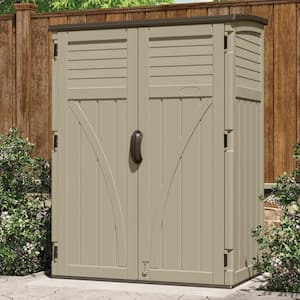
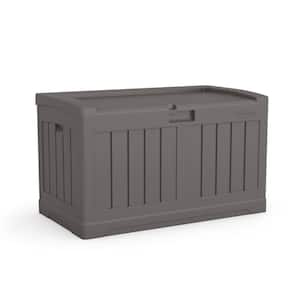
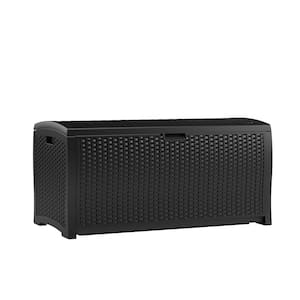
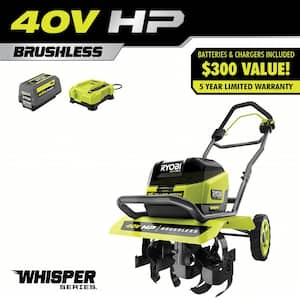
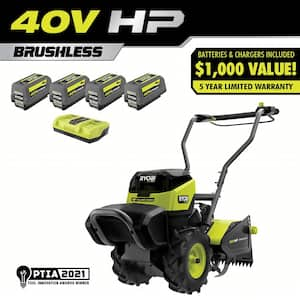
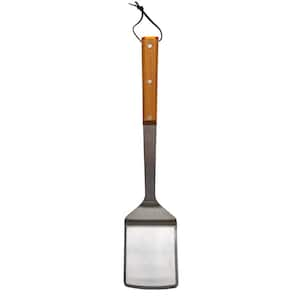
)
)
/17_514245_S_012_Product%20Image%20(square).jpg?im=Resize=(300,300))
;Resize=(300,300))
)
)
)
)
)
/2023_P2_Rain_Barrels_Product%20Image%20(square).jpg?im=Resize=(300,300))
)
;Resize=(300,300))
;Resize=(300,300))
;Resize=(300,300))
/12_SOIL_B_0420_Social%20media%20(square).jpg?im=Resize=(300,300))
;Resize=(300,300))
)
)
;Resize=(300,300))
;Resize=(300,300))
;Resize=(300,300))
;Resize=(300,300))
)
)
;Resize=(300,300))
;Resize=(300,300))
;Resize=(300,300))
;Resize=(300,300))
;Resize=(300,300))
)
/18Patio_Camden_Seagrass_5pcSeating_Planters_302468736_DTL3_L_Social%20media%20(square).jpg?im=Resize=(300,300))
;Resize=(300,300))
;Resize=(300,300))
;Resize=(300,300))
)
;Resize=(300,300))
;Resize=(300,300))
)
;Resize=(300,300))
)
.jpeg?im=Crop,rect=(363.69230769230774,1.2307692307692308,958.7692307692308,958.7692307692308);Resize=(300,300))
;Resize=(300,300))
)
;Resize=(300,300))
;Resize=(300,300))
)
;Resize=(300,300))
)
)
;Resize=(300,300))
;Resize=(300,300))
)
)
;Resize=(300,300))
)
;Resize=(300,300))
;Resize=(300,300))
)
)
;Resize=(300,300))
)
)
/Capello_Spring_Mum_10in_Social%20media%20(square).jpg?im=Resize=(300,300))
;Resize=(300,300))
)
)
;Resize=(300,300))
)
)
;Resize=(300,300))
)
)
;Resize=(300,300))
;Resize=(300,300))











































